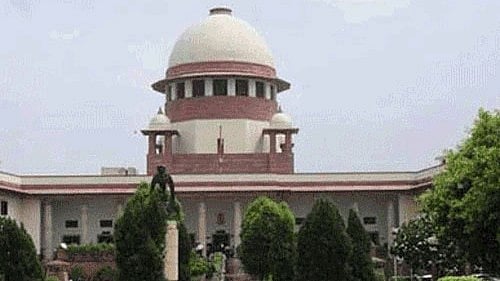
Supreme Court
Credit: PTI file photo
New Delhi: The Supreme Court on Thursday transferred all petitions challenging the results of the Common Law Admission Test, 2025 (CLAT), pending before different High Courts, to the Delhi High Court, to avoid conflicting views.
A bench Chief Justice of India Sanjiv Khanna and Justices Sanjay Kumar and K V Viswanathan ordered shifting of petitions of the undergraduate and postgraduate CLAT-2025 results to the Delhi High Court.
The cases were pending before various High Courts, including the High Courts of Karnataka, Madhya Pradesh, Calcutta, Bombay, Jharkhand and Punjab & Haryana.
“We are also inclined to pass an omnibus order that in case a similar issue is raised before any other High Court in the future, the consortium can file a copy of this order for the transfer of these cases to the Delhi High Court,” the bench said.
The court directed the Registry of different High Courts to transfer all pending matters within seven days and fixed the next hearing before the Delhi high court on March 3.
The Consortium of National Law Universities (CNLUs), led by Solicitor General Tushar Mehta filed the transfer petitions, to prevent delays and jurisdictional inconsistencies in deciding the fate of thousands of aspirants who appeared for the postgraduate and undergraduate examinations on December 1 and December 7, 2024 respectively.
The Delhi high court's single judge had on December 20, 2024, directed the consortium to revise the CLAT-2025 results over errors in the answer key, acting on a plea filed by a CLAT aspirant, challenging the official answer key. The single judge found that the answers to two questions in the exam were incorrect and held that ignoring such errors would result in injustice to the candidates.
On the consortium's appeal against the single judge’s order, the High Court's on December 24, 2024, refused to pass any interim relief, finding prima facie agreement with the single judge’s decision.
Similar other pleas raised other grievances over alleged errors in the answer key, excessive fees for challenging incorrect answers, and procedural irregularities in both the undergraduate and postgraduate entrance tests.
Many petitioners had sought a stay on the publication of the results, citing a lack of transparency and fairness in the evaluation process.
